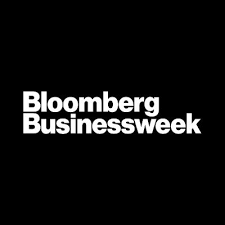
Extractive summaries and key takeaways from the articles curated from TOP TEN BUSINESS MAGAZINES to promote informed business decision-making | Since September 2017 | Week 314 | September 15-21, 2023

TikTok Shop Is a Real E-Commerce Threat
By Shuli Ren | Bloomberg Businessweek | September 18, 2023
Extractive Summary of the Article | Listen
Unlike other social media platforms, TikTok, owned by China’s ByteDance Ltd., seems bent on making money via e-commerce. Globally it aims to reach $20 billion in gross merchandise value this year, a fourfold increase from 2022, Bloomberg has reported.
This month, TikTok Shop made its debut in the US—the short video app’s largest market, with about 150 million active users. Consumers can buy products tagged in videos or QVC‑style livestreams. Alternatively, they can enter a marketplace via a shop tab, prominently displayed on the app’s home screen, to search and browse.
There are those who might brush off TikTok’s new endeavor, believing Americans don’t have the habit of shopping through videos. Meta Platforms Inc. pulled the plug on Facebook’s live shopping feature last year.
Indonesia offers a cautionary tale. Launched there in 2021, TikTok Shop is already poised to outsell the nation’s third-largest e-commerce company, Alibaba Group Holding Ltd.-backed Lazada, which has been around for more than a decade. Users in Indonesia spend an average of an hour a day on the app, just like those in the US.
For now, TikTok doesn’t care about making money via the app in Indonesia, its second-biggest market, after the US, by number of users. Its goal is to prove its platform can help brands and manufacturers convert user attention into sales. That strategy is a big headache for its established rivals. Indonesia’s largest e-commerce platform, Shopee—owned by Singapore-based Sea Ltd.—became profitable for the first time in the fourth quarter of 2022. But the competitive threat is forcing it to reaccelerate investment to boost growth, cutting into profits. In the second quarter, operating income at its e-commerce division came in at $66 million, a 40% drop from the quarter ended December. In July, Alibaba invested an additional $845 million into Lazada. TikTok Shop has been so disruptive that the Indonesian government is talking about banning e-commerce on social media platforms.
3 key takeaways from the article
- Unlike other social media platforms, TikTok, owned by China’s ByteDance Ltd., seems bent on making money via e-commerce. This month, TikTok Shop made its debut in the US—the short video app’s largest market, with about 150 million active users.
- There are those who might brush off TikTok’s new endeavor, believing Americans don’t have the habit of shopping through videos. Meta Platforms Inc. pulled the plug on Facebook’s live shopping feature last year. Indonesia offers a cautionary tale. Launched there in 2021, TikTok Shop is already poised to outsell the nation’s third-largest e-commerce company, Alibaba Group Holding Ltd.-backed Lazada, which has been around for more than a decade.
- TikTok Shop has been so disruptive that the Indonesian government is talking about banning e-commerce on social media platforms.
(Copyright lies with the publisher)
Topics: Technology, e-commerce, Tiktok
